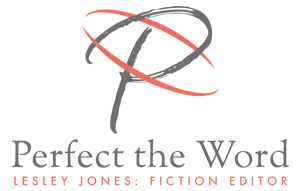. . . and can you expect a perfectly corrected manuscript from Perfect the Word?
I have long considered writing about the name of my business – and hence the name of my website. When I started my editing business around ten years ago, I looked at other editors’ business names and thought about what I should call mine. I had recently recovered from a difficult divorce and had reverted to my maiden name – Jones. Now, while there’s nothing wrong with this illustrious name, and I was proud enough of it to reclaim it, I decided there wasn’t enough oomph to it to merit inclusion in the name of a business. I didn’t want anything too funky, either. After all, editing is a serious business. So I considered the work of an editor. At the time I was working mainly on proofreads for major publishers, perfecting already edited text. Ah, this is it, I thought. I’m perfecting the words of others! And Perfect the Word was born.
That isn’t the end of the story, though. Having read the above paragraph, it’s clear that the word ‘perfect’ in the phrase above is used as a verb, the dictionary definition of which is ‘to make perfect’ or ‘to bring to completion’ (Oxford); ‘to bring to final form’ (MW); ‘to improve to one’s satisfaction’ (Collins); ‘to improve something to one’s satisfaction, to finalize or complete, to develop (a technique, etc) to a reliable standard’ (Chambers). My interpretation of the word has always been along the lines of bringing something to a final form or improve to one’s satisfaction. Oddly, some people I have done business with have understood ‘perfect’ in my business name to be a noun, with the emphasis on the first syllable. I’m not sure how that interpretation works grammatically, really, but there’s not a lot I can do about that!
I was very lucky when I committed to working as a proofreader and then as an editor on a full-time basis, and soon found that I was booking in clients several months ahead (sidenote – my lead time is now twelve months, so please contact me in plenty of time). I considered changing the name of my business because I was now no longer sure that I wanted to appear to promise perfection, or even lead authors to believe that their manuscript would be perfect (noun) once it had been through my hands. I decided, however, that as far as I was concerned, my business name was based on a loose interpretation of the verb ‘to perfect’, and that having worked hard (or got lucky) to establish that business, it would be a mistake to change the name.
Why did I doubt myself? Well, during the course of those first couple of years, I learned that, as Voltaire said, perfect is the enemy of good. Or, to quote Shakespeare (King Lear, Act 1, Scene 4) ‘Striving to better, oft we mar what’s well.’ And to repeat a well-known edict ‘If it ain’t broke, don’t fix it!’
Which leads me to the main purpose of this post. I now work mainly for self-publishing authors because I believe everyone has a right to publish their work. When you choose me as your editor, will the end result be perfect? It is often said that if you give a piece of prose to five editors, you will get five different edits. It’s true that all five might spot obvious typos and incorrect punctuation, but (bearing in mind we’re talking about fiction here) each one of the five might interpret the text in a different way. One might strive to ensure adherence to a particular style guide such as Hart’s, another might go with the Chicago Manual of Style. A third editor might allow non-standard grammar only in dialogue; a fourth might allow it in narrative as well. A fifth editor might have cut their teeth on academic texts and ‘correct’ all contractions. There are plenty of other interpretations too numerous to mention. However, if any editor strives so hard for perfection that the author’s voice – and therefore the unique quality of their work – is lost, then perfect is indeed the enemy of the good.
It is unlikely that the independent author will put their manuscript through as many stages as those a traditional publishing house typically does. There should certainly be more than one, though, after the MS leaves the author’s hands for the first time, and one of the final stages should be a proofread (or at least a read-through) by someone who has never seen the text before. At the end of all those stages, when the child of the author’s mind is published, will the text be perfect, therefore? The answer is – probably not. We have all found typos in traditionally published books! Typically, each stage will correct ninety-five per cent of errors (the next, ninety-five per cent of those remaining, and so on). Indeed, errors can be introduced at layout stage, which is why that final proofread is so necessary.
 When you place your work with me, I promise I will endeavour to do the best job I can, and that the end result will be a positive contribution to your book. I will listen to your preferences. I will preserve your voice. And I will help you bring the work to its final form, improved to your satisfaction.
When you place your work with me, I promise I will endeavour to do the best job I can, and that the end result will be a positive contribution to your book. I will listen to your preferences. I will preserve your voice. And I will help you bring the work to its final form, improved to your satisfaction.
Perfect the Word: polishing your prose; keeping it yours.




